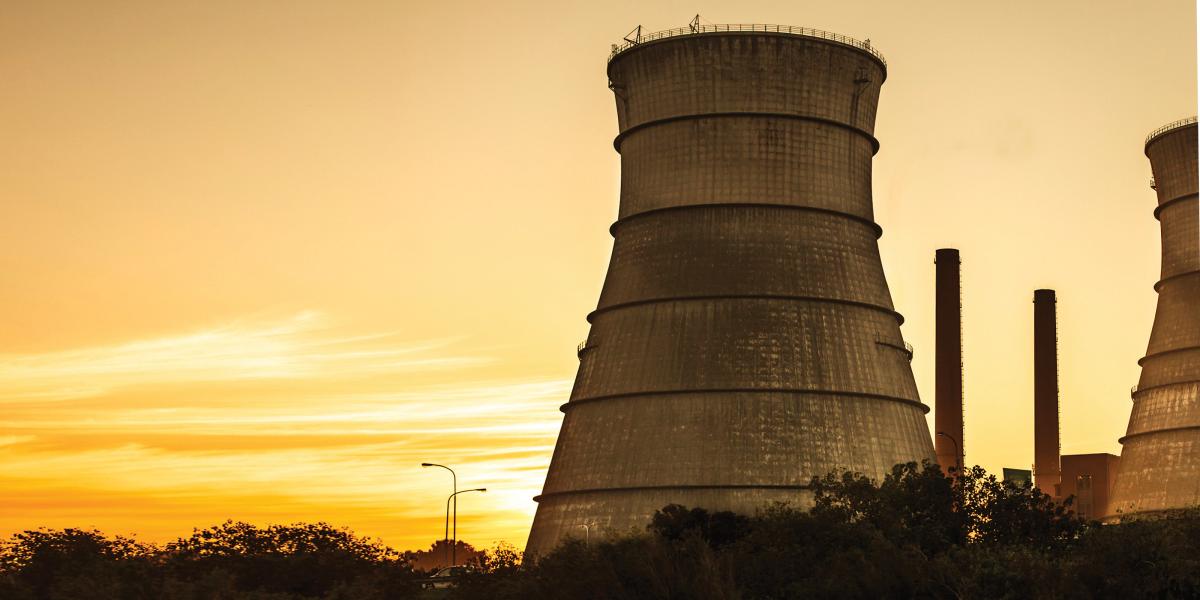Wanted: Radiation Experts
Radiation-exposure issues abound, but few public health experts confront them.
For much of the past two decades, Paul Locke has been working at the crossroads of radiation and public health.
He’s chaired an expert panel on uranium mining, consulted on radioactive waste disposal and currently serves on a federal panel studying the catastrophic accident that happened three years ago at Japan’s Fukushima nuclear power plant.
The Environmental Health Sciences associate professor knows there’s no shortage of radiation-exposure issues that need attention, including aging nuclear power plants and the potential risks of medical imaging technologies.
What is in short supply, says Locke, DrPH, ’98, MPH, JD, are public health professionals dedicated to ensuring the safety of workers, communities and the environment from unhealthy radiation exposure.
“These are the people regulating things that we come into contact with every day, the people who make sure that radioactive metals from other countries aren’t in our products,” he says. “As educators we need to do a better job to show our students why this is a vibrant and important field for them.”
Dan Hudson, a risk and reliability engineer at the Nuclear Regulatory Commission (NRC), doesn’t need to be convinced.
“Over the past 20 years, risk assessment for nuclear power plants has focused primarily on engineering issues—what can we do to prevent nuclear power plant accidents?” says Hudson, a second-year PhD student in Health Policy and Management and a student in Locke’s course, Risk Communication During and After Nuclear Reactor and Radiation-Related Accidents and Emergencies. “That’s obviously important, but when I go back [to the NRC] I hope to have some expertise in how to do assessments of the public health consequences so we can better integrate this information into the risk assessments of nuclear power plants.”
The decline of a public health presence in state and federal agencies that regulate radiation exposure is a “national tragedy,” says Locke. “The public health perspective, which is a prevention perspective, brings more of a community-as-a-client approach.”
Locke has worked with the EPA on radiation risk associated with radon exposure in homes and on the cleanup of “legacy sites” in the U.S., many of which are more than 60 years old. At the Hanford Nuclear Reservation in Washington state, for example, new leaks from tanks were discovered in March.
Last year, he visited Japan’s earthquake- and tsumani-damaged Fukushima Daiichi Nuclear Power Plant, as part of a National Academy of Sciences (NAS) committee working on a “lessons learned” report to improve the safety of nuclear power plants in the U.S.
An NAS study that he led concluded “steep hurdles” needed to be overcome before a uranium mining moratorium in the Commonwealth of Virginia should be lifted.
Two significant sources of radiation that Locke says Americans typically don’t take seriously are radon/background radiation (which is responsible for 37 percent of the average American’s radiation exposure and the leading cause of lung cancer among nonsmokers) and computer tomography technology (which accounts for 24 percent of total exposure).
“Without a public health voice in radiation protection, we’re never going to be doing the job we should be doing in making sure the public has needed information to make good decisions and a regulatory system that protects communities,” Locke says, “and we’re not going to be thinking about developing radiation sources in ways that are best for society.”
